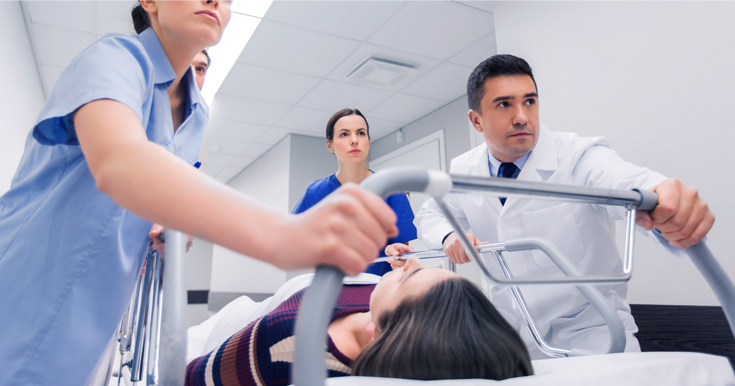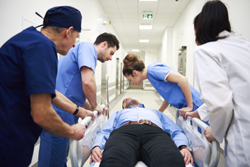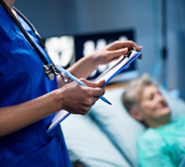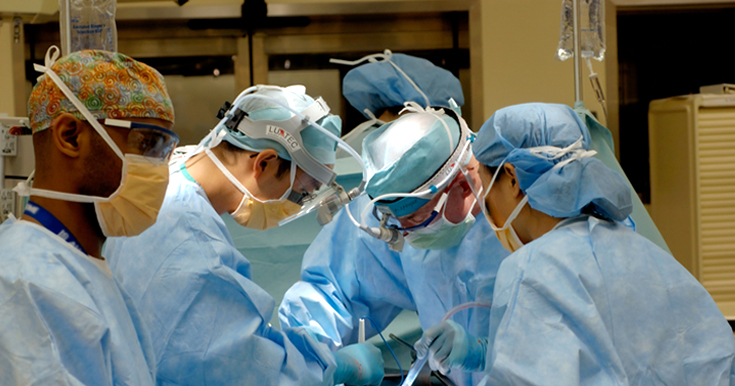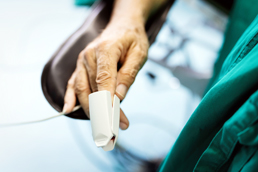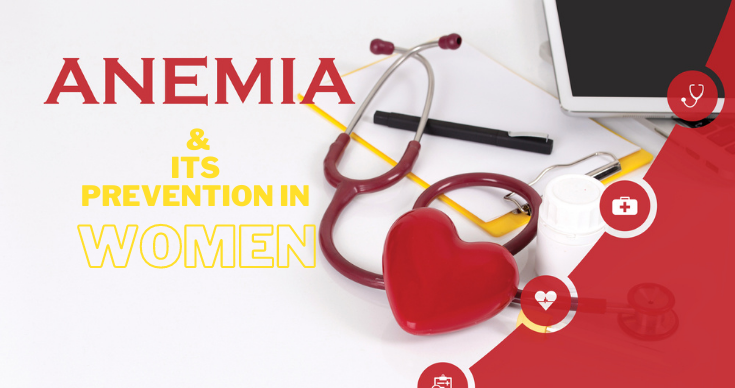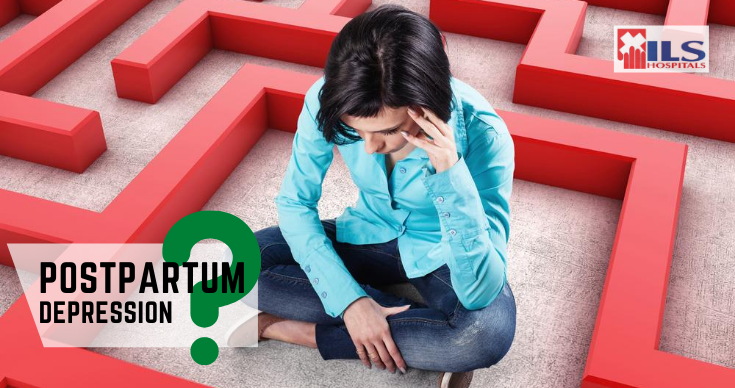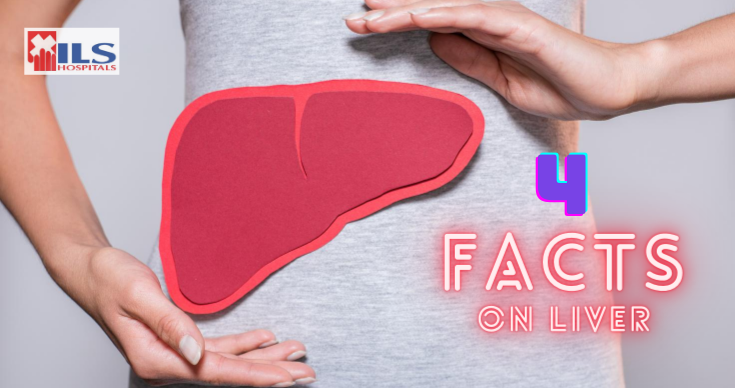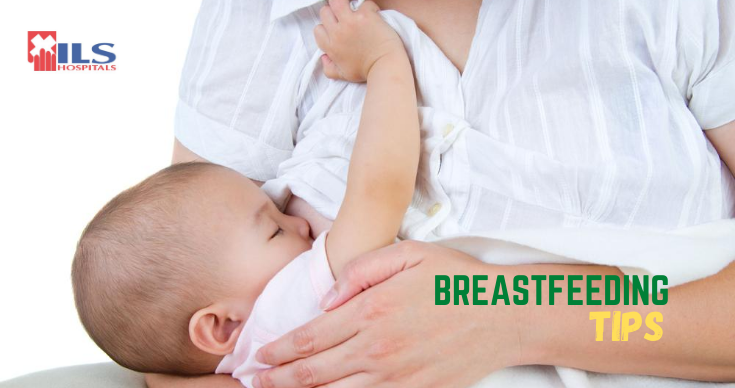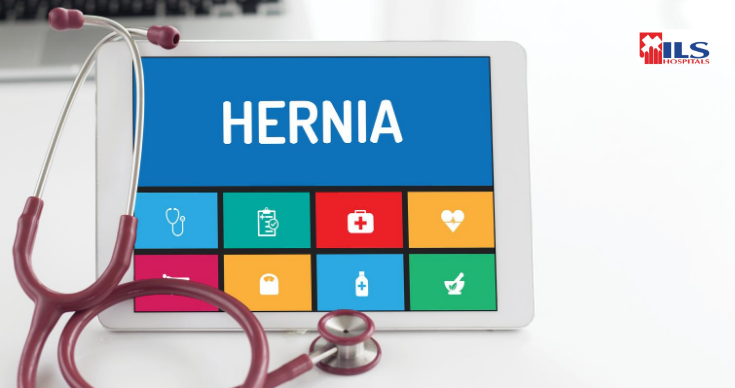Know the Five Steps of Emergency Care
We live in a world of uncertainty and prone to sudden ailments, accidents, or injury. It is at this time when we need emergency services. Emergency care is an essential part of our healthcare system. The patients in emergency care get immediate treatments compared to other patients. In an Emergency Department, there is a specific team of physicians, nurses, and healthcare professionals to provide urgent care to the patients. There are five necessary steps of Emergency Care:
1 – Triage
The first step involves sorting by understanding the severity of the patient’s condition. After the patient’s arrival, an assigned nurse will collect the medical history and perform the necessary examinations, like checking the pressure, pulse rate, and relating to the symptoms, if required. After the initial medical examination, the nurse will assign a priority level like Resuscitation, Emergency, Urgent, Semi-urgent, and Non-urgent, for the patient.
Only one member can accompany the patient to the emergency care department. In emergency care, the patients get the treatment based on their emergency.
2 – Registration
Registration is necessary for the patients in emergency care. A patient’s visit to emergency care may be due to various unfortunate events. Registration will help record the details of the patient. It will be useful for both the patient and also the hospital to have the document. With registration, the hospital authorities can get consent to start on with the treatment/surgery.
Sometimes, severe patients are taken directly for surgery or similar emergency treatment. It will also enable the surgeon/physician to decide on the best treatment for the patient. The specialists who have access to the patient’s room will carry on with their registration process in a serious scenario.
3 – Treatment
After the registration process, the treatment of the emergency care patients begins. A medical practitioner or an attending physician do the minor treatments of the patient. Based on the patient’s condition, he/she gets fluids or medications as recommended with the help of an intravenous line. Other tests like blood-test, urine-test, ECG, X-Ray follow accordingly.
Some test takes longer time to showcase the results, during the time of the stay, the emergency care department makes sure the patients are comfortable and under constant care. Only two attendants are allowed at a time in the patient’s room.
4 – Re-evaluation
The next step starts after the test results of the patients are received. It will decide the patient’s condition if any further treatment is required. At this stage, the physician can also contact the patient’s doctor for any supplementary information. The patient should inform the physician to know about any additional pain or discomfort felt by the patient.
5 – Discharge
The last step is patients discharge. A patient is discharged from the hospital if everything is stable in his/her medical reports. Emergency care must keep the patients healthy when under their observation. They are home-instructions; after discharge from the emergency care, a patient should follow them religiously. After their release from the emergency department, every patient should follow-up with their doctors regarding their health status.
Conclusion
Most emergency hospitals follow these well-organized steps of emergency care. Whenever in need, search for the best emergency hospital in Kolkata. With the knowledge of systematic emergency care rules, you can help those in need and save lives. It is always advisable to understand the processes involved in emergency care for one’s good. If you are in search of the best emergency hospital in Kolkata, then https://www.ilshospitals.com/ should be on your priority list.
Post-Cardiac Surgery Complications – What All Should Be Avoided After A Heart Surgery
Surgeries, of any nature, are complicated and require utmost care and precision. Especially, pre- and post-heart surgeries, everybody needs several weeks to heal itself. The post-care after surgery or ailment is equally valuable and should be a slow & progressive process. The gravity of post-cardiac surgery care must not be overlooked for faster recovery.
Cardiac surgery differs from general surgery, but general surgery hospitals might tell you about what to be avoided after heart surgery. Many general surgeons in Kolkata will guide you through post-cardiac surgery care.
Interventional cardiology is an advanced branch of cardiology that deals with non-invasive techniques to evaluate the functions of the heart and detect abnormalities. Some of the most common interventional cardiology procedures are as follows:
- Coronary catheterization
- Angioplasty and stenting
- Percutaneous Valve Repair
- Balloon Angioplasty
- Atherectomy
Keeping this in mind, we have compiled the complications and preventions of post-surgery conditions that will help you enjoy a healthy life.
Post-Cardiac Surgery Complications
Cardiac surgery is usually done if there is a blocked artery to the heart. As much as it is a matter of care before proceeding with the surgery, it is imperative to be vigilant after the surgery.
Following is the list of complications that might arise after the cardiac surgery-
1 – Chest Infection
After the surgery and anaesthesia, there is a possibility of chest infection in the patient. Depending on the severity, antibiotics and painkillers are used to subdue the infection.
2 – Heart Attack or Stroke
Generally, this may happen if you have a history of cardiac ailments and have undergone surgery. Post-surgery strokes can impact the recovery and will require extra care.
3 – Kidney Failure
In rare cases, the kidney stops functioning post-surgery. In most cases, kidney failure is temporary and is resolved by dialysis.
4 – Blood Clots
Post-surgery, blood clots may form in the body if the patient has a history of obesity, chain smoking, or immobility. Usually, the clots start from the legs and move to the lungs resulting in serious problems.
5 – Post-operative Bleeding
Cardiac surgery involves a lot of incisions and suturing. Sometimes, the bleeding continues after suturing, and fluctuations are observed in the blood pressure. Surgeons take necessary measures to normalize the condition of the patient.
6 – Other
Other complications include irregular heartbeat, chest pain, delirium, difficulty in breathing, insomnia, nausea, poor appetite, constipation, sore throat, and fatigue. But they go away with time.
Post-Surgery Care
1 – Incision Healing
Cardiac surgery includes a lot of incisions and suturing. Thus, post-surgery, avoid direct contact of water with the incision to mitigate any infection on the incision site.
2 – Stop Smoking
While recovering from heart surgery, it is crucial to keep smoking at bay to avoid further complications in the heart and lungs.
3 – Exercising
Any general surgeons in Kolkata will prescribe light exercise or climbing the stairs after cardiac surgery. But at the same time, faster recovery needs enough rest and sleep. Avoid over-exercising and over-sleeping.
4 – Mental Health
Post-surgery, the stress in mind means stress on the heart. Involve yourself in small activities and meditation to avoid stress, depression, anxiety, and anger while recovering. Living happily post-surgery expedites the recovery process.
5 – Eating Habits
Avoid eating oily and fried food. Eat healthy food or consult dieticians in the general surgery hospitals to enquire about post-surgery diet plans. Loss of appetite is common post-surgery but keeping a healthy diet plan balances your hunger.
At ILS Hospitals, we are well-equipped to administer pre-cardiac and post-cardiac surgery care. With the best surgeons’ team, we provide all the treatment and care needed to the patient after cardiac surgery.
Whether it be general surgery or Interventional cardiology like Angioplasty or Valvuloplasty, you need experienced and top cardiologists & surgeons. Even here, the post-surgery aftercare is imperative to recover to your daily routines. We at ILS Hospitals can assist you with clinical cardiology or even general surgery.
If you wish to know more about interventional and clinical cardiology, or other medical treatments in the hospitals, call ILS Care, +91 90514 60000 or visit https://www.ilshospitals.com/
7 Ways to Boost your Immunity
Your health is your biggest asset. In the last few months of 2020, many people have come to this realisation the hard way. Health and hygiene have been the top-most priority of most people this year, owing to the pandemic. A healthy person with a strong immune system can defend his body against disease-spreading microorganisms. Giving your immunity that boost requires a balance in your eating habits, exercise, stress levels and depends on various factors like age, genetics and lifestyle choices. Hospitals in Kolkata, even the multispecialty hospitals have been pointing out the benefits of a strong immunity system.
To give your immunity a boost, it is essential to follow a healthy lifestyle and maintain balance and harmony in your body. Here are certain ways to give your immunity that boost and defend any disease-causing germs and viruses.
- Healthy Diet: Rich in nutrients and antioxidants, a healthy and balanced diet provides your body with the fuel needed to keep it going. Adding more fibre, omega-3 fatty acids, probiotics to your diet can help keep your system healthy and fight diseases.
- Limited intake of Sugar: Added sugar contributes to obesity and too much sugar can cause a spike in blood sugar as well as increase the risk of diabetes. Curbing sugar can lead to weight loss which might reduce the risk of heart disease and type 2 diabetes.
- Adequate Sleep: 6-8 hours of sleep is essential for your body to function well. Poor quality sleep is highly linked to increased risk of sickness. Getting adequate rest strengthens your natural immunity and more sleep helps the immune system to fight sickness.
- Moderate Exercise: Regular, moderate exercise like brisk walking, aerobics or sports can help reduce inflammation and improve your immunity. It aids in weight loss and helps improve your metabolism. It leads to quicker regeneration of immunity cells in the body.
- Proper Hydration: While there is no direct link between hydration and your immunity, preventing dehydration is the goal for better health. Dehydration can cause headaches and ailments in the digestive system, kidney or heart which can make your body susceptible to illness.
- Stress Management: Stress levels and anxiety need to be kept in check for better immunity. Prolonged stress can lead to suppression of the immunity system and can imbalances in the cells. Regular exercise, yoga, journaling, meditation or seeking professional help is advised for relieving stress.
- Maintain Hygiene: Washing of hands frequently, especially before eating or after coming back home, wearing clean clothes, eating properly cooked food, wearing a mask in public and taking precautions to avoid infections is recommended.

People with low immunity are more prone to diseases like pneumonia, bronchitis, meningitis and are at higher risk of contracting diseases from bacteria and other microorganisms, including COVID-19. These few changes in your lifestyle can really improve your health. While they do not guarantee your protection from different diseases, they do help you put up a better fight when your body is exposed to disease-causing microorganisms.
If you face any such issues, don’t delay the treatment and fix your appointment with our Pulmonology and Chest Medicine Department. In case of any emergency, contact or visit ILS Hospitals, a multispecialty hospital, known for its excellent healthcare services. To know more, call ILS Care +91 90514 60000 or visit www.ilshospitals.com.
Anemia And Its Prevention In Women
Anemia is a health condition in which the body does not make enough RBCs (red blood cells) or hemoglobin. Hemoglobin is an essential protein found in the blood that is responsible for giving blood its colour and it also helps in the transportation of oxygen throughout the body. When you have low hemoglobin, you have anemia, when you have anemia, you encounter symptoms, like fatigue and shortness of breath. Anemia can be mild to severe and short-term to even long-term.
Anemia is a serious health concern in our country, India. More than 50% of women in India under the age of 15-49 years are suffering from anemia. It is a matter of concern and we all must talk about it. The biggest question to ask is why women are more prone to suffer from anemia? As per health professionals working at some best hospitals in Kolkata, women are more vulnerable to suffer from iron deficiency anemia because of blood loss during menstruation, pregnancy, and post-childbirth. Mostly, in our country, more women are suffering and have been diagnosed with iron deficiency anemia, obviously, due to malnutrition or poor nutrition. Anemia can be easily diagnosed by a blood test or hemoglobin test and is treated by medications, blood transfusion, and lifestyle changes, all depending upon the severity and the type of anemia.
Today, ILS Hospitals, one of the best hospitals in Kolkata and Agartala will guide all women who are reading this blog on preventing this serious medical condition called anemia. So, to all women, carefully read and apply the following mentioned things in your life to never see the face of anemia.
Consume lots of iron-rich foods
Iron is crucial to avoid iron deficiency anemia. Consume iron-rich foods, like spinach, eggs, red meat, chicken liver, fish, peas, black beans, kidney beans, chickpeas, tofu, oysters, apples, banana, and pomegranates.
Get sufficient vitamin B12
Most patients with anemia have low vitamin B12 levels. Eat eggs, fish, chicken, mutton, milk, cheese, butter, fortified breakfast cereals, and so on.
Receive enough vitamin B9 or folate
Vitamin B9 or folate is extremely important for pregnant women. Consume foods that are rich in vitamin B9, such as peanuts, whole grains, eggs, fish, liver, leafy greens, citrus fruits, etc.
Include more vitamin C in your diet
Vitamin C helps in better absorption of iron. Have more tomatoes, bell peppers, oranges, lemons, papayas, strawberries, and so on.
Avoid drinking hot beverages along with meals
Ensure to not drink hot beverages – tea and coffee along with your meals as it hampers the iron-absorbing power of the body.
Take vitamin supplements
Sometimes diet cannot provide all the vital nutrients needed for the body. In that case, vitamin supplements are prescribed by the medical practitioner. Consult the doctor and ask him or her to prescribe you vitamin supplements if needed.
Get a complete body checkup to rule out other types of anemia
There are other types of anemia as well – sickle cell anemia, hemolytic anemia, etc. Get a complete body checkup from a reputed healthcare centre or hospital in Kolkata to rule out other types of anemia.
Visit ILS Hospitals, the leading hospital in Kolkata and Agartala to get accurate diagnoses and timely treatment for anemia.
Childbirth: ILS Hospitals’ Guide On Postpartum Depression
Pregnancy and childbirth are incredible experiences but for some women, they can also become overwhelming. Sometimes, pregnancy and delivery are not sunshine and rainbows because baby blues are real. Baby blues are a psychological condition felt by women right after delivery. When you have baby blues, you feel unhappy and emotionless for no reason. Usually, baby blues go away on their own within a week but in case if a new mother has baby blues that last longer than two weeks then she might be suffering from postpartum depression.
(Get premium care during pregnancy and childbirth from ILS Hospitals, the best maternity hospital in Kolkata and Agartala)
Postpartum depression is a serious mental condition that happens to new mothers post childbirth due to psychological and hormonal changes in the body. You’re more at risk of developing postpartum or postnatal depression if you fall under the following criteria:
- History of depression or other mental disorder
- Do not have support from the spouse, family, and friends
- Lack of sleep
- Have an unwanted and unplanned pregnancy
- Dealing with a financial crisis
- Living a stressful life
- Genetics.
Symptoms of Postpartum Depression
- Feeling sad and hopeless
- Mood swings
- Frequent crying without any reason
- Insomnia or hypersomnia (sleeping too much)
- Anxiety
- Poor appetite
- Difficulty concentrating
- Anti-social behaviour
- Anhedonia (not enjoying things that were once enjoyable)
- Thoughts of hurting the baby or oneself.
If you have the above symptoms that persist for more than one or two weeks, do not delay getting medical treatment.
Treatment for Postpartum Depression
Once you’ve been diagnosed by the healthcare professional for postnatal depression, you might be prescribed the following treatment:
- Talk therapy
- Medications – mostly antidepressants
- Electroconvulsive or shock therapy (in severe cases when the above methods don’t work)
Visit ILS Hospitals, one of the best hospitals in Agartala and Kolkata to get an accurate diagnosis and effective treatment for postpartum depression.
4 Outstanding Facts On Liver By The Best Hospital In Kolkata
A liver is an amazing organ that requires no further introduction. Your liver performs essential functions, like detoxifying the body and storing vital nutrients.
Recommended Read: Signs Of A Liver That’s Damaged And Requires Liver Treatment
Today, ILS Hospitals, one of the best hospitals in Kolkata and Agartala will tell you 4 outstanding facts on liver so stay connected!
Your liver can regenerate itself
Yes, you heard that right. It’s an absolutely correct statement. A liver can completely regrow itself from 25% to 100 % in a matter of weeks. When a person donates 75% of his or her liver then the liver can regenerate itself to its original size in two weeks without fail.
Healthy liver = Well-functioning brain
Your liver regulates plasma glucose and ammonia levels in the body. If these two enzymes are not regulated then it will lead to a serious medical condition called hepatic encephalopathy (declined brain function) that can result in a coma. So, yes, admit it, a healthy liver is crucial for a healthy brain.
Liver is important for drug metabolism
Oral medicines are first converted by the liver for the body to accept and if your liver does not or is unable to perform this vital function then no matter how much effective the oral medicines are, they just won’t work.
Our liver is the second largest organ in the body
The liver weighs more than 3 pounds and is the second-largest organ in the body. So, which one is the first largest organ? Well, it’s your skin.
Since the liver is such a superstar organ, it needs great care and love. An unhealthy liver can lead to serious liver ailments, like fatty liver disease and cirrhosis. If you want your liver to be young and healthy, then take note of the following things:
- Eat a healthy and balanced diet
- Maintain a healthy weight
- Ditch your sedentary lifestyle
- Avoid hepatitis B and hepatitis C infections
- Quit smoking
- Drink alcohol moderately
- Get regular medical checkups
If you need liver treatment in Kolkata and Agartala, consider ILS Hospitals. Our several healthcare units in Kolkata and Agartala aim to provide accurate and effective liver treatment.
Covid -19: How To Breastfeed Your Baby If You’re Covid Positive
COVID-19 cases are increasing drastically and the vaccine is still not available to the masses. If you’re a COVID positive new mother then you have to take as many precautions as you can because you have to breastfeed your newborn baby.
(Get in touch with the best gynaecologist in Kolkata for clearing queries related to gynaecological health.)
According to WHO (World Health Organization), mothers can breastfeed their babies even if they have tested positive for COVID-19. We still don’t have enough evidence to point out that Coronavirus can be transmitted through breastmilk. As breastmilk is extremely important for the newborn baby’s health and development, we encourage all new mothers to breastfeed their little ones cautiously and by keeping note of the things mentioned below:
Wear a mask while breastfeeding
Never forget to wear a mask or cloth covering before breastfeeding your baby. Wear a proper face mask that covers your nose and mouth perfectly. You can also wear a face shield over your mask.
Wash your hands before and after holding your baby
Wash your hands right before and after holding your baby. Also, use a hand sanitizer once you’ve washed your hands with soap and water.
Use a breast pump
Using a breast pump is an excellent choice now as it will require contactless breastfeeding. Ensure that the breast pump is well-sanitized after each use. When you’re using a breast pump, you can ask someone else to hygienically feed your baby.
Avoid close contact with the baby
Do not let emotions drive you. Avoid touching and being in close contact with your baby while breastfeeding.
Take good care of yourself and we hope you defeat Corona soon. For any health-related supervision, visit ILS Hospitals, the best hospital in Kolkata and Agartala.
যাতনা কাহারে বলে !
হেপাটাইটিস বি এক রক্তবাহিত জীবাণু এবং সারা বিশ্বব্যাপী লিভার রোগের অন্যতম প্রধান কারণ| পৃথিবী জুড়ে প্রায় 30 কোটি মানুষ আক্রান্ত এবং এ সংখ্যা ক্রমবর্ধমান| ভারতবর্ষে গড়ে শতকরা 4 জন এই ভাইরাস বহন করে চলেছেন; অনেকে নিজের অজান্তেই | অতিরিক্ত সংক্রমণ প্রবণতা দেখা যায় তাদের যারা ইনজেকশন ড্রাগ এড্ডিক্ট, যাদের বহু যৌনসঙ্গী আছে আর যারা চিকিৎসা পরিষেবার সাথে যুক্ত|
2016 সালে বিশ্ব স্বাস্থ্য সংস্থা অঙ্গীকার করে সারা বিশ্ব থেকে 2030 সালের মধ্যে হেপাটাইটিস বি কে নির্মূল করার| আজ বিশ্বের অধিকাংশ দেশেই জাতীয় হেপাটাইটিস বি দূরীকরণ প্রোগ্রাম চালু আছে| আক্রান্ত জনগোষ্ঠীর যেহুতু মাত্র শতকরা দশ ভাগ তাদের সংক্রমণ সম্বন্ধে অবহিত, তাই আরো অধিক সংখ্যায় টেস্ট করার ওপর সর্বাধিক গুরুত্ব দেওয়া হচ্ছে| এছাড়াও হেপাটাইটিস বি দূরীকরণ এর জন্য সর্ব স্তরের মানুষের ভ্যাকসিনেশন, চিকিৎসা পরিকাঠামোর উন্নয়ন, চিকিৎসার সর্বজনীক অধিকার এবং সরলীকৃত নির্দেশাবলী জরুরি পদক্ষেপ|
হেপাটাইটিস বি দূরীকরণের উদ্দেশ্যে কাজ করে চলেছেন অগণিত স্বাস্থ্যকর্মী, গবেষক ও জনস্বাস্থ্য বিশেষজ্ঞ| কিন্তু দুঃখের বিষয়, যাদের কথা ভেবে এতো কিছু সেই আক্রান্ত মানুষগুলো পড়ে আছেন বহু দূরে| তাদের আশা, আকাঙ্খা আর অধিকারের নিঃশব্দ বাণী পৌঁছচ্ছে না কারো কানে| এই অসহায়তা আর বঞ্চনার গুরুত্ব শুধু রুগীর সংখ্যা আর মৃতের হিসাব দিয়ে মাপা যাবে না| প্রতিটি মানুষের অভিজ্ঞতা ভিন্ন ও তাঁর নিজস্ব| আজ তাই সময় এসেছে এই আক্রান্ত মানুষগুলোর কথা শোনার|
সমাজবিদেরা আজ প্রধানত তিন ধরণের সমস্যার কথা উপলদ্ধি করছেন :
1. প্রাথমিক সমস্যা : যা আক্রান্ত ব্যক্তির মনোসামাজিক সমস্যা
2. আনুষঙ্গিক সমস্যা : যা আক্রান্ত ব্যক্তির প্রতি সামাজিক প্রতিক্রিয়ার ফলস্বরূপ
3. সুদূরপ্রসারী সমস্যা : এই সামাজিক প্রতিক্রয়া যে ক্ষতি বয়ে আনে
প্রাথমিক সমস্যার মধ্যে প্রথমেই পরে লিভার ক্যান্সার ও লিভার সিরোসিস এর ভয়| হেপাটাইটিস বি রোগ নির্ণয় এক অজানা আশংকায় ভাবিয়ে তোলে; আছে রোগের ক্রমবর্ধমানতা আর অকাল মৃত্যুর ভয়| গুগল ইউনিভার্সিটি তে রুগী হাতড়ে চলেন হেপাটাইটিস বি র তথ্যভান্ডার| আর যত বিদ্যে বাড়ে ততই বাড়ে ভয় ও আতঙ্ক| তথ্য আছে কিন্তু নেই এমন কোনো সার্চ ইঞ্জিন যা দেবে ভরসা| তাই আসে একাকিত্ব, হতাশা আর বাস্তব কে অস্বীকার করবার জেদ| দুশ্চিন্তা ও হতাশা আরো ডালপালা মেলে যখন একদিন সত্যিই রোগের লক্ষন দেখা দেয়|
এর সাথে যোগ হয় আর্থিক চিন্তা| নিয়মিত চিকিৎসা, ঘন ঘন কাজ কামাই, ব্যয়বহুল পরীক্ষা নিরীক্ষা; এসবের দাবি যে অন্তহীন| তার উপর পরিবারের বাকি সদস্যদের পরীক্ষা, তাদের ভ্যাকসিন দেওয়ার ব্যবস্থ্যা – সব তো আর ইন্সুরেন্স দেবে না| আর ভাইরাস ছড়ানোর ভয়| নিজের ই টানা লক্ষ্মণরেখায় গুমরে মরে| বিয়ে নয় সন্তান নয় | শুধুই তুমুল একাকিত্ব |
আনুষঙ্গিক সমস্যা গুলির দিকে এবার দৃষ্টিপাত করা যাক| এতো ঢাক পেটানো প্রচারের আলো তাও মানুষ এখনো ভেবে চলেছেন একসাথে খাবার খেলে, এক চেয়ার এ বসলে, হাত মেলালে, এক গাড়িতে চাপলে সংক্রমণ ছড়াবে| কেউ কেউ আবার ভাবছেন এ ব্যাটা বংশগত রোগে ভুগছে| মানুষের জ্ঞানের পরিধি বাড়লে তো এসব অবৈজ্ঞানিক চিন্তা থাকার কথা নয়| দুঃখের ব্যাপার হলো এ ব্যাপারে চীন এর হাইমেন শহরে এক সমীক্ষায় দেখা গেলো সম্পূর্ণ উল্টো ফল – যত জ্ঞান বাড়ছে তত বাড়ছে ছুৎমার্গতা| তাই শুধু তথ্য নয়, ভরসাটাও জরুরি| এ ব্যাপারে এগিয়ে আসতে পারতেন চিকিৎসক ও স্বাস্থ্যকর্মীরা| কিন্তু তারা নিজেরাই ভাইরাস এ আতংকিত হওয়ায় তাদের সদিচ্ছা রূপ পাচ্ছে না| সংক্রামিতর পরিবারের সকল সদস্যকেই ক্যারিয়ার ভেবে নিলে ভুল হচ্ছে|
কর্মস্থলে দিনরাত চলছে চাপা গুঞ্জন| আইন আছে অনেক কিন্তু তা ঠুঁটো জগন্নাথ| কোনো কোনো দেশ তো দেয় না প্রবেশের অধিকার |
আর তাই দিনের শেষে আসে নীরবতা, আসে একাকিত্ব | বৃহত্তর সমাজথেকে দূরে সরে যাওয়া | মাদুলি তাবিজ, তুক তাক আর জড়িবুটির অন্ধগলির খোঁজ চলতে থাকে | ধেয়ে আসে অপরাধবোধ|পাপের ভোগ না কর্মফল| নিস্তেজ মন ভাবে এ জীবন মূল্যহীন|
আজ 28শে জুলাই ওয়ার্ল্ড হেপাটাইটিস ডে তে আমরা যখন আলোকিত আলোচনাসভায় বসেছি, তখন আমাদের চেতনায় থাকুক এই মানুষ গুলোর না বলা কথা আর অজানা উপলদ্ধি| ওষুধ, পরীক্ষা আর ভ্যাকসিন এর সাথে প্রেসক্রিপশন এ জায়গা করে নিক ভালোবাসা, মমত্ব আর সহানুভূতি | গবেষকরা ফাঙ্কশনাল কিওর এর সাথে আবিষ্কার করুন ফাঙ্কশনালি প্রোডাকটিভ লাইফ কিভাবে বজায় রাখা যায়| সমাজকর্মীরা এগিয়ে আসুন সৎ পরামর্শ দিতে যাতে হেপাটাইটিস বি আক্রান্তরা বিষাদ কাটিয়ে যোগ দেন জীবনের মূলস্রোতে| সমাজবিদেরা আলোকপাত করুন মনোজগতের গহীন বনে; যে আলোর ছটায় দূর হয়ে যায় ভয় অস্থিরতা অনিশ্চয়তা| সর্বোপরি দেশচালকেরা নিয়ে আসুন বিশ্বাসের বাতাবরণ|
সবাইকে নিয়ে শুরু হোক নতুন ভোর!
Written by : Dr. Sanjay Banerjee
Is There Only One Type Of Hernia? What’s The Ideal Hernia Treatment?
A hernia is an abnormal protrusion of tissue or an organ that generally occurs in the abdomen or groin region.
Many people have the misconception, that there is only one type of hernia – groin hernia. Today, ILS Hospitals, one of the best hospitals in Kolkata and Agartala will let you know the different types of hernia and its ultimate medical treatment. So, let’s read further.
Different types of hernia
Inguinal hernia
Often called groin hernia, inguinal hernia happens when tissue (part of the intestine) protrudes through a weak abdominal opening. Inguinal hernias can be painful when you cough or lift a heavy object.
Hiatal hernia
Hiatal hernia is a medical condition in which your stomach bulges up to your chest through hiatus (an opening in the diaphragm. Common symptoms associated with hiatal hernia include heartburn, chest pain, nausea and vomiting.
Incisional hernia
Incisional hernia can happen in case of an incompletely-healed surgical wound. Incisional hernias have symptoms, such as redness, pain, and swelling around the affected area.
Sports hernia
Sports hernia may occur in the groin due to sports injuries. It should not be confused with groin hernia.
Umbilical hernia
An umbilical hernia is a hernia of the belly button. It mostly happens in infants, pregnant women, and the ones who are overweight.
Treatment for hernia
The only effective treatment for a hernia is hernia repair surgery. Of course, you’ll find hernia truss or belts in the market but keep in mind that they are no permanent cure. If you have a hernia, you need to get surgical hernia treatment as sooner as possible. The hernia repair surgery could be either general or minimally-invasive (laparoscopic) depending upon your current condition.
You can come to ILS Hospitals in Kolkata and Agartala for getting permanent hernia treatment.
Are You Stressed Or Depressed? Let’s Dive Deeper
Stress is often mistaken as depression and depression is often thought to be stress. In today’s fast-paced world, more and more people are getting diagnosed with stress and depression.
As per psychiatrists practising in best hospitals in Kolkata, depression is a loss of interest in things and a feeling of constant sadness. Stress can either be emotional or mental and can be triggered by multiple factors. For instance, students becoming stressed out before their final exams and being cheery once the exams get over is a perfect example of stress.
Depression is another concept that requires our undivided attention. Chronic stress can become depression. There are many people with signs of clinical depression but unfortunately, they do not get the help they need due to various reasons. There’s a stigma attached to depression which we must remove from our society. It’s because of this stigma many patients do not seek therapy or get professional help in spite of showing signs of depression.
So how do signs of stress and depression differ?
Signs of stress
- Problems in concentration
- Poor memory
- Overeating
- Anxiety Anger issues
- Difficulty doing daily activities.
Signs of depression
- Constant feeling of sadness and hopelessness
- Lack of motivation in doing anything
- Undereating or overeating
- Sleeping more or less than normal
- Memory problem
- Frustration and anger
- Demotivation
- Disinterest in everything
- Suicidal thoughts.
If you are stressed out, take a break and try to relax a bit. In the case of depression, seek professional help. Visit a good psychiatrist and get medical therapy. Depression is not something to be taken lightly or ignored. Your mental health is equally important as your physical health. Yes, life is possible after depression. ILS Hospitals in Kolkata and Agartala will help you in every way possible when you’re on the journey to overcome depression.











